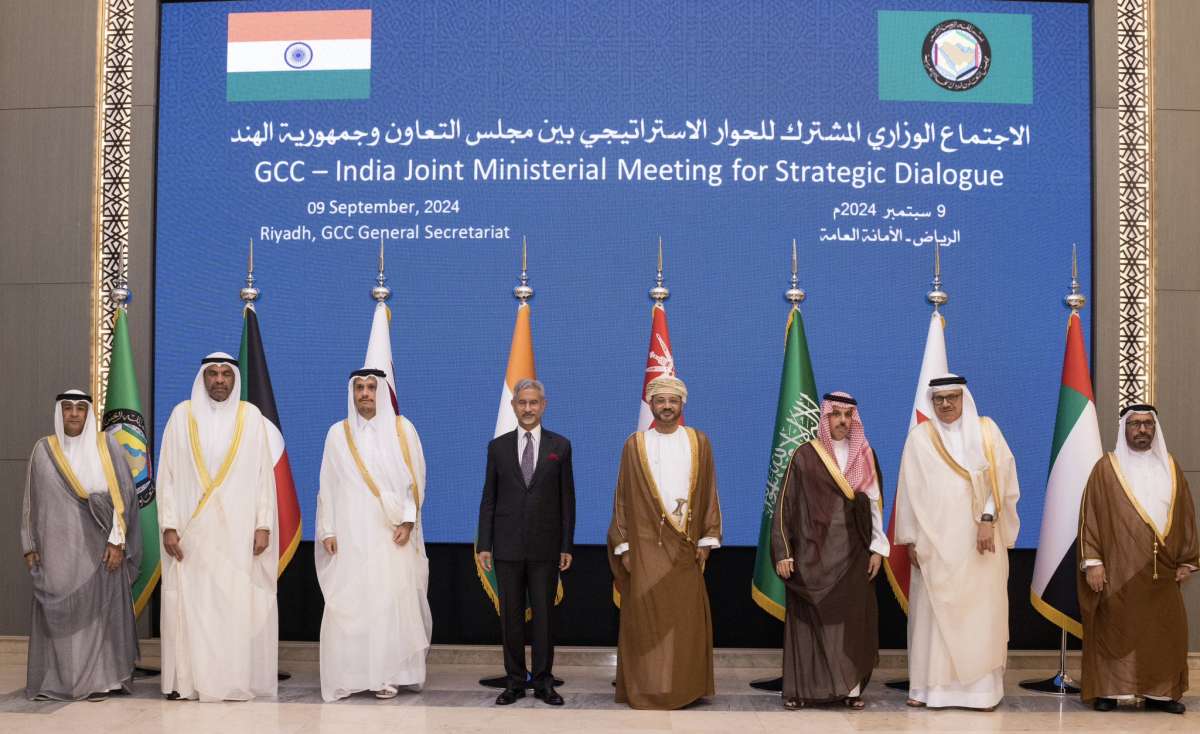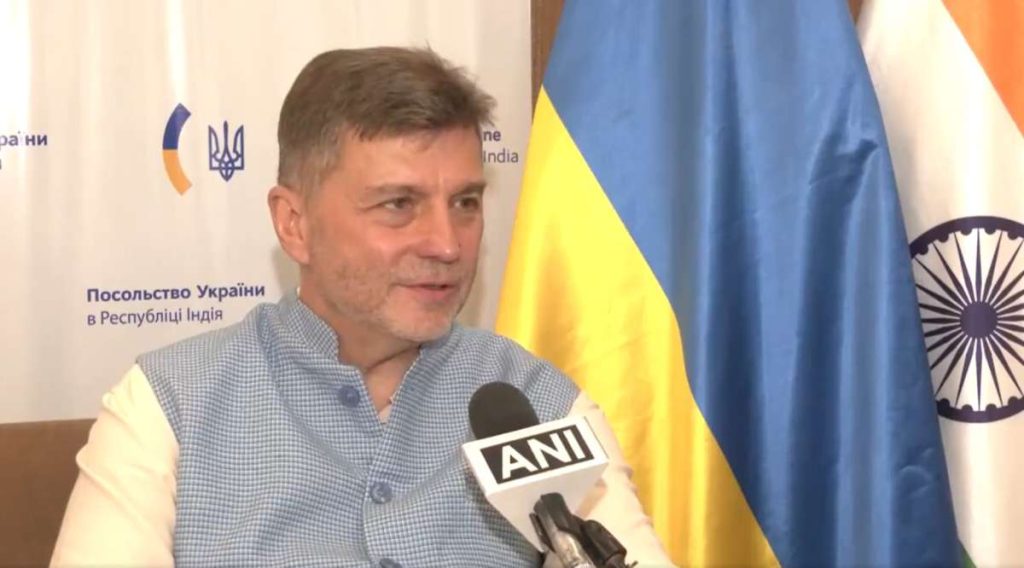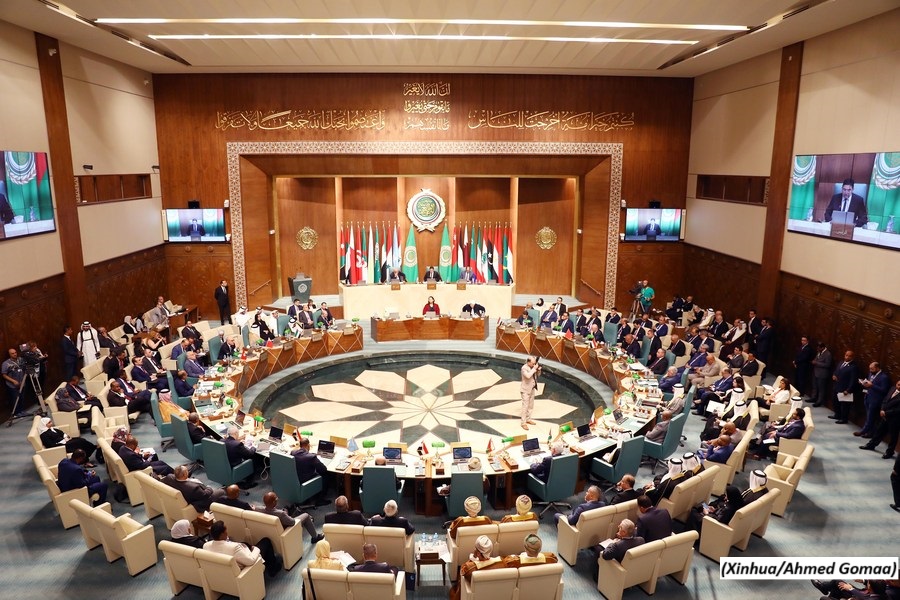Dr S. Jaishankar outlined people, prosperity, progress, and security as key pillars of India-GCC ties while addressing the inaugural Strategic Dialogue, adopting a Joint Action Plan for 2024-2028….reports Asian Lite News
External Affairs Minister S Jaishankar outlined the four key pillars that enhance the India-GCC (Gulf Cooperation Council) partnership, namely — people, prosperity, progress, and security.
Notably, Jaishankar on Monday addressed the inaugural India-GCC Joint Ministerial Meeting for Strategic Dialogue.
Sharing a post on X, Jaishankar wrote, “Co-chaired the inaugural India – Gulf Cooperation Council Joint Ministerial Meeting for Strategic Dialogue in Riyadh.”
Elaborating on the key pillars of the India-GCC partnership, Jaishankar wrote, “Underlined the key pillars of our partnership. People: The 9 million-strong Indian community serves as the bedrock of our friendship. Appreciate efforts for their welfare and comfort; Prosperity: domains of energy, trade, investment, connectivity and technology constitute a unique bond. Our many complementarities and convergence help take it forward. Urged early conclusion of India – GCC FTA.”
Highlighting progress as one of the key pillars, the External Affairs Minister underscored the advances made in India-GCC partnerships in various sectors, and wrote, “Progress: explored together new partnerships in renewables, innovation, education, health and space; Security: strengthen exchanges, exercises and industry collaboration in defence.”
The meeting also adopted a Joint Action Plan 2024-2028 for undertaking various joint activities in diverse areas, including health, trade, security, agriculture and food security, transportation, energy, culture, amongst others. It was also decided that more areas of cooperation can be included in the Joint Action Plan, based on mutual consensus, later on.

‘Future demands will come from India’
Jaishankar also emphasised the critical role of GCC and described it as a “cornerstone of the global energy supply.” He also showcased India’s economic growth, noting that the country has emerged as one of the world’s fastest-growing markets.
Jaishankar further underscored India’s importance in global demand, asserting that much of the world’s future demands will come from India.
He said, “The GCC is a cornerstone of the global energy supply. India is one of the world’s largest and fastest-growing markets. Much of the future demand is going to come from us. Our deeper collaboration will help in stabilising markets, driving innovation and enhancing energy security.”
He added, “Our partnership in the area of renewables, technology and innovation, health, space and education can also help realise our respective national goals. But our relationship goes beyond just transactions. It is built on a foundation of trust, mutual respect and a shared vision for the future.”
Jaishankar emphasised the foundations of the India-GCC partnership, and said that the ties are “rooted in a rich tapestry of history, culture and shared values.”
“Our meeting today is not just an occasion to reflect on our achievements but an opportunity to chart an ambitious and far-reaching course for the future The relationship between India and the GCC is rooted in a rich tapestry of history, culture and shared values. These bonds have grown stronger with time, evolving into a partnership that spans economics, energy, defence, technology, education, people-to-people ties and beyond… Let me offer the framework of the three Ps — People, prosperity and progress. Our people-to-people ties are the bedrock of our relationship,” he said.
Jaishankar underscored the importance of India-GCC interactions, emphasising that collaboration between the two sides is crucial for driving prosperity. “Our interactions are key to driving prosperity for the GCC and for India. Trade has not only expanded in volume but also in diversity, encompassing a wide range of goods and services that fuel our economy and create jobs,” Jaishankar said.
‘Current situation in Gaza India’s foremost concern’
External Affairs Minister, S. Jaishankar on Monday reiterated India’s “principled and consistent” stand on the Palestinian issue while calling for a ceasefire in the region, as soon as possible.
“The current situation in Gaza is now understandably our foremost concern. India’s position in this regard has been principled and consistent. While we condemn acts of terrorism and hostage taking, we are deeply pained by the continuing death of innocent civilians. Any response must take into account the principles of humanitarian law. We support a ceasefire as soon as possible,” the EAM said while co-chairing the inaugural India–Gulf Cooperation Council (GCC) Joint Ministerial Meeting for Strategic Dialogue in Riyadh.
“On the larger issue, we have consistently stood for a resolution of the Palestinian issue through a two-State solution. We have also contributed to the building of Palestinian institutions and capacities. Where the humanitarian situation is concerned, we have provided relief and increased our support to UNRWA,” he added.
The meeting took place at the headquarters of the GCC General Secretariat and on the sidelines of the 161st Ministerial Council meeting chaired by Qatar’s Prime Minister and Foreign Minister Mohammed bin Abdulrahman bin Jassim Al Thani, President of the current session of the Ministerial Council.
Jaishankar also had separate bilateral meetings with the Prime Minister and Foreign Minister of Qatar Sheikh Mohammed bin Abdulrahman bin Jassim Al Thani, Foreign Minister of Kingdom of Saudi Arabia Prince Faisal bin Farhan Al Saud, Foreign Minister of the Sultanate of Oman Sayyid Badr bin Hamad bin Hamood Albusaidi, Minister of Foreign Affairs of the State of Kuwait Abdullah Ali Al Yahya, and the Foreign Minister of Bahrain Dr. Abdullatif bin Rashid Al Zayani on the sidelines of the India – GCC Ministerial meeting.
ALSO READ: Jaishankar holds talks with Russian counterpart Lavrov













